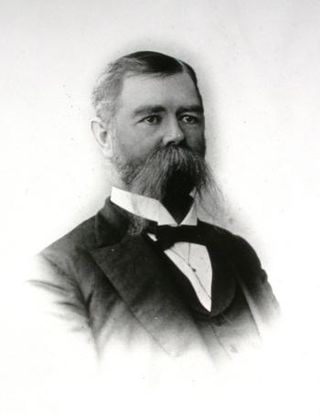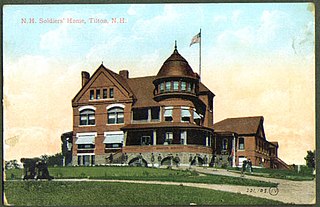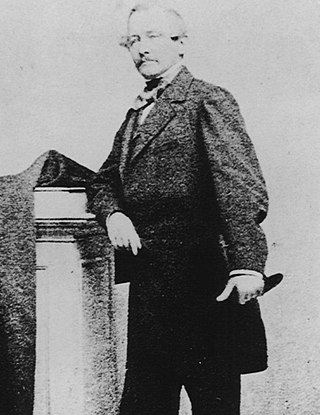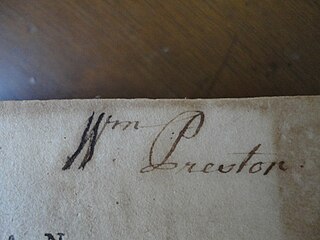Related Research Articles

Andrew Pickens Jr. was an American soldier and politician. He served as the 46th Governor of South Carolina from 1816 until 1818.

Elias Carr was an American planter, lawyer, and politician who served as the 48th governor of the U.S. state of North Carolina from 1893 to 1897.

William Alexander Graham was a United States senator from North Carolina from 1840 to 1843, a senator later in the Confederate States Senate from 1864 to 1865, the 30th governor of North Carolina from 1845 to 1849 and U.S. secretary of the Navy from 1850 to 1852, under President Millard Fillmore. He was the Whig Party nominee for vice-president in 1852 on a ticket with General Winfield Scott.

An old soldiers' home is a military veterans' retirement home, nursing home, or hospital, or sometimes an institution for the care of the widows and orphans of a nation's soldiers, sailors, and marines, etc.

Benedict College is a private historically black college in Columbia, South Carolina, United States. Founded in 1870 by northern Baptists, it was originally a teachers' college. It has since expanded to offer majors in many disciplines across the liberal arts. The campus includes buildings in the Benedict College Historic District, a historic area listed on the National Register of Historic Places.

Brigadier-General John Floyd was an American politician, planter and military officer who served in the 1st Brigade of the Georgia Militia during the War of 1812. One of the largest landowners and wealthiest men in Camden County, Georgia, Floyd also served in the Georgia House of Representatives, as well as the United States House of Representatives.

Rosewell Plantation in Gloucester County, Virginia, was for more than 100 years the home of a branch of the Page family, one of the First Families of Virginia. Begun in 1725, the Flemish bond brick Rosewell mansion overlooking the York River was one of the most elaborate homes in the American colonies.
Wade Hampton II was an American politician, plantation owner, and soldier in the War of 1812. He was a member of the Hampton family, whose influence was strong in South Carolina politics and social circles for nearly 100 years.

Thomas Bothwell Jeter was the 79th Governor of South Carolina from September 1, 1880 to November 30, 1880. His home in Union, South Carolina is listed on the National Register of Historic Places.

Abraham Van Buren II was an American soldier and the eldest son of Martin Van Buren, the eighth President of the United States and his wife, Hannah Hoes Van Buren. A career soldier and veteran of the Second Seminole War and Mexican–American War, Van Buren was named in honor of his paternal grandfather Abraham Van Buren, an officer in the Albany County militia during the Revolutionary War.

Johannes Petrus "John Peter" Van Ness was an American politician who served as a U.S. Representative from New York from 1801 to 1803 and Mayor of Washington, D.C. from 1830 to 1834.

The Callaway Plantation, also known as the Arnold-Callaway Plantation, is a set of historical buildings, and an open-air museum located in Washington, Georgia. The site was formerly a working cotton plantation with enslaved African Americans. The site was owned by the Callaway family between 1785 until 1977; however, the family still owns a considerable amount of acreage surrounding the Callaway Plantation. When The plantation was active, it was large in size and owned several hundred slaves.

Millwood is the site and ruins of an antebellum plantation house at 6100 Garner's Ferry Road, Columbia, South Carolina. Owned by Colonel Wade Hampton II and his wife Ann Fitzsimmons Hampton, it was the boyhood home of their first son Wade Hampton III and other children. He later became a Confederate general and later, South Carolina governor, and U.S. Senator.

William Bull was a colonial American landowner and politician in the Province of South Carolina.

Colonel William Preston was an Irish-born American military officer, planter and politician. He played a crucial role in surveying and developing the Southern Colonies, exerted great influence in the colonial affairs of his time, owned numerous slaves on his plantation, and founded a dynasty whose progeny would supply leaders of the South for nearly a century. He served in the House of Burgesses and was a colonel in the Virginia militia during the American Revolutionary War. He was one of the fifteen signatories of the Fincastle Resolutions. Preston was also a founding trustee of Liberty Hall when it was transformed into a college in 1776.
Goodwill Plantation is a historic plantation and national historic district located near Eastover, Richland County, South Carolina. The district encompasses 10 contributing buildings and two contributing structures. They include the millpond and a portion of the canal irrigation system ; the overseer's house ; the 2-1/2-story frame mill building ; two slave cabins ; a blacksmith shop; the late-19th century main house; a lodge ; and a carriage house, tenant house, barn and corn crib.
Hopkins Family Cemetery is a historic family cemetery located near Hopkins, Richland County, South Carolina. It was established about 1775, on the Back Swamp Plantation. A wall and stile were built about 1835–1837. It contains 69 marked graves of the Hopkins and related families.
William Beverley (1696–1756) was an 18th-century legislator, civil servant, planter and landowner in the Colony of Virginia. Born in Virginia, Beverley—the son of planter and historian Robert Beverley, Jr. and his wife, Ursula Byrd Beverley (1681–1698)—was the scion of two prominent Virginia families. He was the nephew of Peter Beverley (1668–1728), Speaker of the Virginia House of Burgesses, and the grandson of wealthy Virginia planter William Byrd I (1652–1704) of Westover Plantation. Beverley's mother died shortly before her 17th birthday, and he was sent to England.
William Henry Cain was an American plantation owner and politician; he served as the lieutenant governor of South Carolina from 1846 to 1848.
References
- ↑ Green, Edwin Luther (June 11, 1916). "A History of the University of South Carolina". State Company – via Google Books.
- ↑ http://www.richlandcountysc.gov/Portals/0/Departments/PublicInformationOffice/Docs/BriefHistoryOf%20Richland%20County.pdf [ bare URL PDF ]
- ↑ Mary, College of William and (June 11, 1900). "William and Mary College Quarterly Historical Magazine". William and Mary College. – via Google Books.
- 1 2 3 4 http://www.nationalregister.sc.gov/richland/S10817740150/S10817740150.pdf Hopkins Family Cemetery National Register of Historic Places nomination form